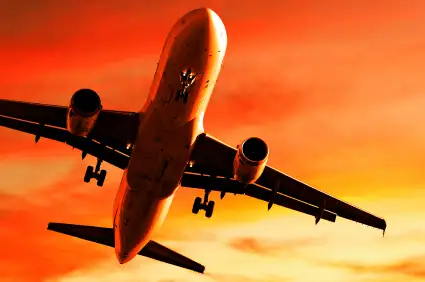
I’m not a pilot (and I don’t play one on TV, or even here on the Internet) but this headline, “Senators demand FAA address airline pilot commutes,” from the AP, still generated an “uh-oh” from me when I read it. Why? For the same reason that I gave a thumbs down to the National Transportation Safety Board’s (NTSB) proposal to record pilots’ in-flight chit chat: Fear that the government and its regulatory agencies would place too much of the burden of responsibility on pilots, rather than the industry, where it likely belongs.
The Associated Press (AP) explains the situation thusly, using the crash of Continental Flight 3407 as an example: “The pilots of Continental Connection Flight 3407 were based in Newark, N.J., but the captain lived in Florida and the first officer lived near Seattle…. The captain had slept two of the three nights before the flight in an airport crew room where there were no beds and sleeping was discouraged. The first officer spent the night before the flight commuting across the country in a cockpit jump seat.”
For many pilots, commuting long distances is not a choice. “Aircraft and base assignments change frequently,” writes pilot Patrick Smith, “and having to uproot and move each time a new bid comes out—especially if you’re making $30,000 or less and trying to support a family—would be enormously disruptive and expensive. Moreover, can you really expect a junior pilot or flight attendant to live in Boston, New York City or any other expensive metropolitan area on a regional airline salary?”
But FAA safety analyst Peggy Gilligan told the AP that, nevertheless, it’s a pilot’s responsibility to show up rested and ready to go. “Many pilots have commuted throughout their careers and have done so very responsibly,” she said, also pointing out that airline safety records are very good.
And, quite frankly, no pilot would dispute this. Pilots are professionals, and to reiterate that it’s a pilot’s responsibility to show up properly rested is redundant to the point of being insulting. “On the whole,” Smith writes, “pilots are pretty good at getting adequate rest prior to work,” even though company rules can force pilots to “leave home several hours before sign-in, in some cases a full day prior.”
Back to my initial reaction. My sense of foreboding was validated when I read that Colgan Air, which operated Flight 3407, will be keeping the lights on in its crew lounges to discourage pilots from sleeping there. The Buffalo News reports that the regional carrier’s practice of keeping the lights on was revealed at a recent Senate hearing. NTSB chairwoman Deborah Hersman said Colgan’s so-called solution “won’t really mitigate the problem.” Oddly enough, Colgan’s idea is a tacit admission of how flawed the system has become: The airline clearly recognizes that its pilots are forced into complicated commuting schedules, which often leave them stuck for hours at a time with nowhere to sleep.
The solution, obviously, is to pay regional pilots better salaries, or to reform pilot work and rest rules, or both. “Commuting is a factor,” Smith writes, “But what about the pilots’ work schedules themselves? It worries me that commuting, rather than the Federal Aviation Administration’s inadequate duty time and rest rules, is going to get the bulk of public attention.” As it stands, regional pilots can often work 13- or 14-hour days, including a maximum eight hours in the air (often the only time they are actually paid for). Sandwich a few of those next to each other, and it’s not difficult to see how pilots could end up fatigued.
Readers, what do you think is the the most crucial factor in the overall fatigue issue? Commuting? Work and rest schedules? Pay? What would you do to fix the situation? Leave a comment below with your thoughts. Thanks!
We hand-pick everything we recommend and select items through testing and reviews. Some products are sent to us free of charge with no incentive to offer a favorable review. We offer our unbiased opinions and do not accept compensation to review products. All items are in stock and prices are accurate at the time of publication. If you buy something through our links, we may earn a commission.
Related
Top Fares From
Today's Top Travel Deals
Brought to you by ShermansTravel
Japan: 10-Night Kanazawa Tour, Incl. Kenrokuen...
smarTours - JNTO
 vacation
$4320+
vacation
$4320+
Mediterranean Cruises w/Free Balcony Upgrade, Specialty...
Holland America Line
 cruise
$1399+
cruise
$1399+
Ohio: Daily Car Rentals from Cincinnati
85OFF.com
 Car Rental
$19+
Car Rental
$19+



